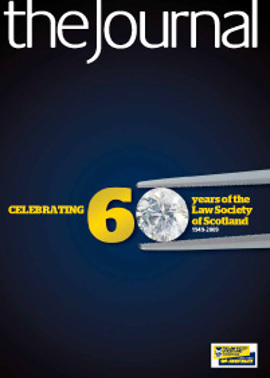The changing role of the law school
The priority for the modern law school is to help students develop the personal and professional skills and knowledge they need to transform the future. Law may be one of the oldest professions in the world, but the pace of change is rapid and some law schools are at the forefront of providing flexible and innovative education to ensure graduates are capable of reaching the highest levels of their careers.
Strathclyde Law School, for example, pioneered the part-time LLB degree taught in the evenings and at weekends, and has developed Scotland’s first and only law clinic where students provide advice to members of the public who are ineligible for legal aid and otherwise unable to pay for legal services. The clinic provides a unique opportunity for students to enhance their skills and professionalism, while at the same time providing an invaluable service to the community.
Tomorrow’s law school must balance the demands of attaining the highest standards of academic rigour with the provision of qualifications that help professionals and graduates get ahead in an increasingly turbulent economic climate. The recently published Research Assessment Exercise 2008 provides the yardstick to test a law school’s claims to excellence in teaching and research, while opportunities for graduates can be measured by the range of postgraduate subjects offered to address the demand for ever more specialist qualifications. Popular postgraduate programmes developed at Strathclyde include Construction Law, Human Rights Law and Information Technology and Telecommunications Law. The demand for postgraduate qualifications with a global perspective is evident in the newest LLM degrees, International Economic Law, and International Law and Sustainable Development.
In order to offer training programmes at the forefront of professional legal education, a law school has to establish close links with the profession, and utilise expert practitioners when developing professional training programmes. The use of practitioner-tutors on the Diploma in Legal Practice, for instance, enables students to experience not just high quality tutoring and project-based learning opportunities, but more importantly “real-world” insights that they can carry forward into the foundational legal skills such as advocacy, negotiation and drafting, and into their traineeships.
Innovative use of IT can enhance the learning experience for students and enable them to practise a range of transactions within a virtual environment such as SIMPLE, Strathclyde’s SIMulated Professional Learning Environment. Nearly all lectures in the Centre for Professional Legal Studies are webcasts or podcasts, in online environments where students can access their materials, and tutors can interact with students.
Flexibility of learning is core to the Diploma. Techniques can be adapted from other disciplines and tailored to professional legal education. Students can practise interviewing, for instance, with “standardised clients”, adapted from medical education where the technique is in widespread use throughout the UK and USA. It’s a powerful way of learning where students learn quickly in intense encounters with clients.
At the core of legal education, and especially in the Diploma and the Professional Competence Course, is a concern for professionalism, for the qualities that lie at the heart of what it is to be a solicitor in Scotland. The modern law school must address these concerns with both innovative and practical solutions. Technology offers one such solution. Another is to provide students with real-life opportunities to work with the law. The law clinic, described above, is an example. The high quality of professional skills the students can develop in this environment received recognition when the law clinic was awarded Best Contribution by a UK Law School at the LawWorks & Attorney General Student Awards 2009.
As the Law Society of Scotland finalises its plans to develop professional legal education in Scotland, it is at this interface that the law schools continue to work closely with the Society to embrace the challenges of the coming years, with an absolute commitment to the highest standards in legal education and research.
In this issue
- Defining year
- At the heart of the debate
- In shape at 60
- Banks doing business
- To take us forward
- Striving after fairness
- Knowledge is protection
- The changing role of the law school
- Risk: nip it in the bud
- Close relations
- Conference keeps getting better
- Booming baby boomer
- Channel vision
- Variations on a theme
- Customer survey scores a plus
- Prepare for the upturn
- New look Society gets go-ahead
- Backing for "Wider Choice"
- Private client tax specialists recognised
- Law reform update
- From the Brussels office
- Target 2010
- Questions of our times
- Ask Ash
- Breaking the chain
- What will they do next?
- Sins of emission
- Scottish Solicitors' Discipline Tribunal
- Are we ready?
- Website review
- Book reviews
- Duty within bounds
- Change to fair
- Home reports update






